PREVIOUS
Jallianwala Bagh Massacre
April 13 , 2019
2519 days
22240
0
- The incident took place on April 13, 1919, at Jallianwala Bagh, Amritsar, Punjab.
- It was popularly known as the Amritsar Massacre.
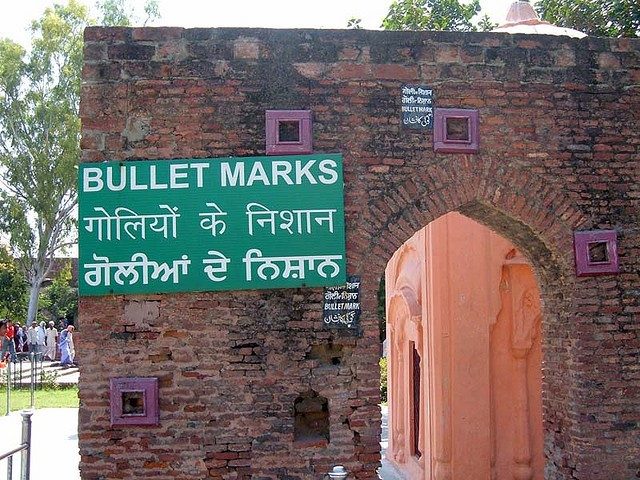
- It was the day of Baisakhi - the main Sikh festival or Sikh’s New year.
- It marks one of the major heinous political crimes committed by the Britishers during the twentieth century.
- It is named after the famous Jallianwala Bagh, which is a public garden stretched over an area of 7 acres, with walls covering all of its sides.

- People had assembled on that day for a peaceful protest to condemn the arrest and deportation of two national leaders, Satya Pal and Saifuddin Kitchlew.
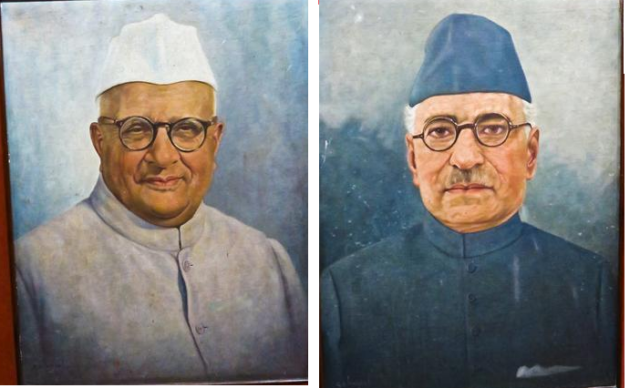
- The troops of the British Indian Army under the command of Colonel Reginald Dyer fired rifles into a crowd of Indians.
- The shooting lasted about ten minutes starting at 4.30 PM.
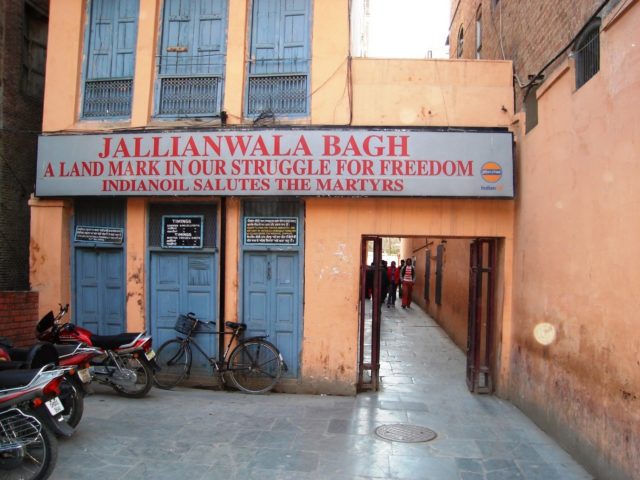
- While the official enquiry by the British informed about 379 deaths, the death toll was quoted to be around 1,000 by Congress.
- There were also about 120 dead bodies recovered from a well nearby area.
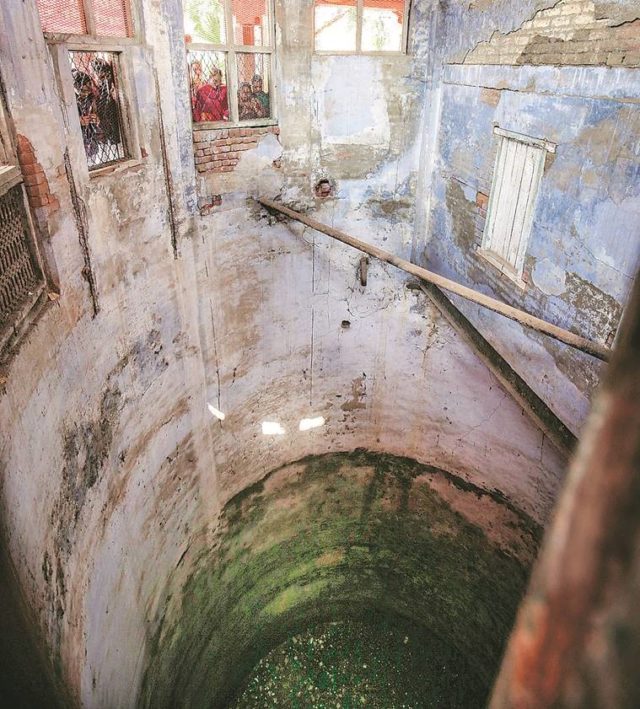
- Gandhi declared that it would be a "sin" to co-operate with the "satanic" government.

Rowlett Act – The Spark plug
- The Rowlett Committee was a Sedition Committee appointed in 1917 by the British Indian Government with Sidney Rowlett, an English judge, as its president.
- Rowlett Committee members were:
- Sidney Rowlett - President
- D. V. Hodge - Secretary (a member of the Bengal Civil Service)
- Basil Scott - Member (Chief Justice of the Bombay High Court)
- V. Kumaraswami Sastri - Member (judge of Madras High Court)
- Verney Lovett - Member (member of Board of Revenue for United Provinces)
- C. Mitter - Member (member of Bengal Legislative Council)
- The purpose of the Rowlett Committee was to evaluate political terrorism in India, especially in the Bengal and Punjab Provinces.
- The Anarchical and Revolutionary Crimes Act of 1919 was popularly known as the Rowlett Act or Black Act.
- It was a legislative Act passed by the Imperial Legislative Council in Delhi on 10 March 1919.
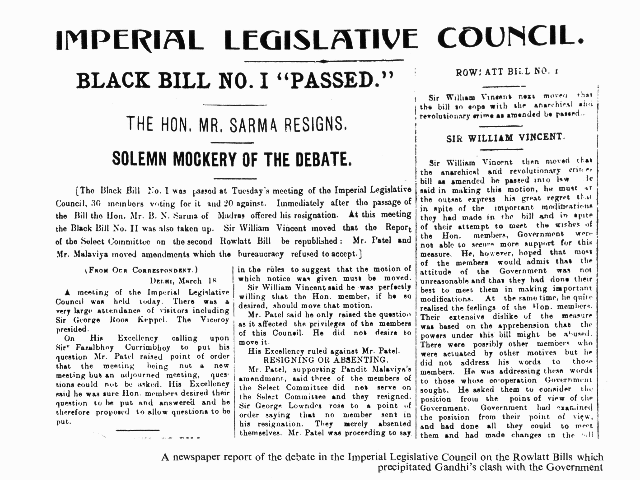
- It indefinitely extended the emergency measures of preventive indefinite detention, incarceration without trial and judicial review enacted in the Defence of India Act 1915 during the First World War.
- It vested the Viceroy's government with extraordinary powers to quell sedition by silencing the press, detaining the political activists without trial, and arresting without warrant any individuals suspected of sedition or treason.
- As a reaction to Rowlett act Muhammad Ali Jinnah resigned from his Bombay seat.
- Mahatma Gandhi was extremely critical of the Act.
- He argued that not everyone should be punished in response to isolated political crimes.
- In protest, a nationwide hartal was called on April 6th.
- The protest aimed to mark the beginning of widespread and popular discontent.
- In the Punjab the protest movement was very strong.
- On 10 April two leaders of the congress, Dr. Satya Pal and Dr. Saifuddin Kitchlew, were arrested at Amritsar.
- They were taken secretly to Dharamsala, the present city in Himachal Pradesh.
Aftermath
- Rabindra Nath Tagore received the news of the massacre by 22 May 1919.
- He renounced his British knighthood, that he had received in 1915, as "a symbolic act of protest" on 30th May 1919.
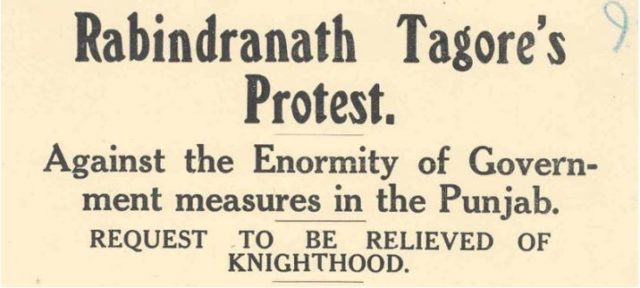
- On 14 October 1919 the Government of India announced the formation of Disorders Inquiry Committee, more widely known as the Hunter Commission.
- The stated purpose of the commission was to "investigate the recent disturbances in Bombay, Delhi and Punjab.
- The Hunter Commission did not impose any penal or disciplinary action because Dyer's actions were condoned by various superiors.
- Dyer was initially glorified by conservative forces in the empire, but in July 1920 he was censured and forced to retire by the House of Commons.
- The House of Lords praised Dyer and gave him a sword inscribed with the motto “Saviour of the Punjab.”
- The ineffective inquiry and the initial accolades for Dyer by the House of Lords fuelled widespread anger, later leading to the Non-cooperation Movement of 1920–22.
- Accepting the report of the Repressive Laws Committee, the Government of India repealed the Rowlett Act, the Press Act, and twenty-two other laws in March 1922.
Revenge by Udham Singh
- Michael Francis O'Dwyer was Lieutenant Governor of the Punjab in India from 1912 until 1919.
- O'Dwyer endorsed Colonel Reginald Dyer's action regarding the Amritsar massacre and termed it a "correct action".
- In a telegram sent to Police Officer Dyer, Lieutenant Governor O’Dwyer wrote: "Your action is correct. Lieutenant Governor approves."
- In 1940, aged 75, he was assassinated by Udham Singh at Caxton Hall in London.
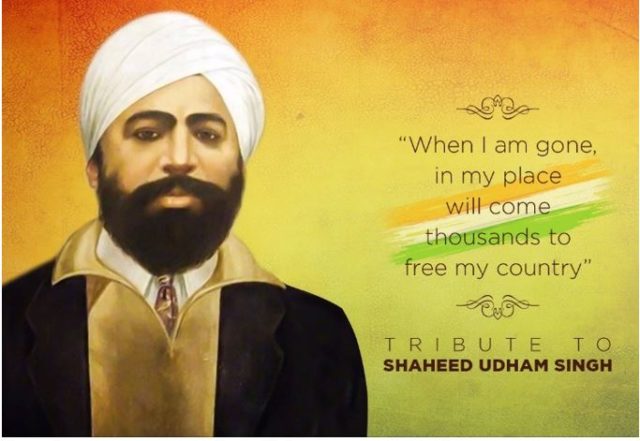
- Lord Zetland, the Secretary of State for India, was presiding over the meeting and was also wounded.
- Singh was subsequently tried and convicted of murder and hanged in July 31, 1940 at Pentonville Prison at London.
- While in custody, he used the name Ram Mohammad Singh Azad, which represents the three major religions of Punjab and his anti-colonial sentiment.
- He is sometimes referred to as Shaheed-i-Azam Sardar Udham Singh.
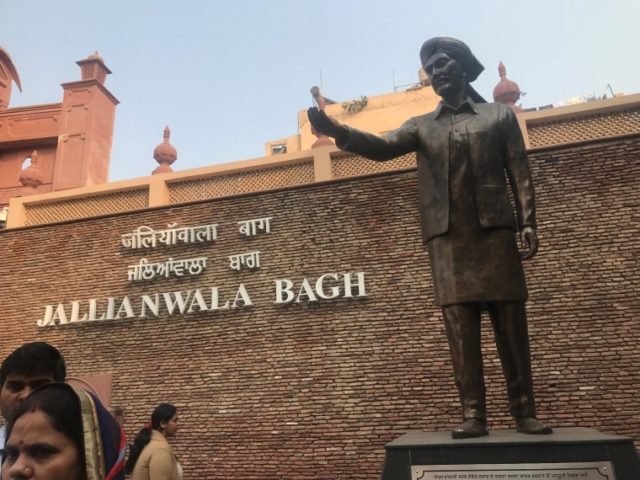
- A district (Udham Singh Nagar) of Uttarakhand was named after him to pay homage in October 1995.
- The day of his death is a public holiday in Punjab and Haryana.
- A statue of him was installed at the Jallianwala Bagh, Amritsar in March 2018.
Memorial
- Keeping in mind the significance of this place in the history of India, a trust was founded in 1920 to build a memorial site at Jallianwala Bagh.
- American architect, Benjamin Polk, built the memorial on site which was inaugurated by the then President of India, Rajendra Prasad on 13 April 1961.
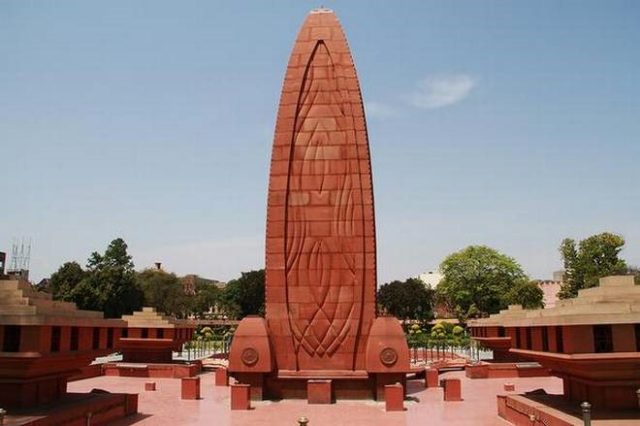
- It is located near the renowned and glorious Golden Temple in the city of Amritsar, Punjab.
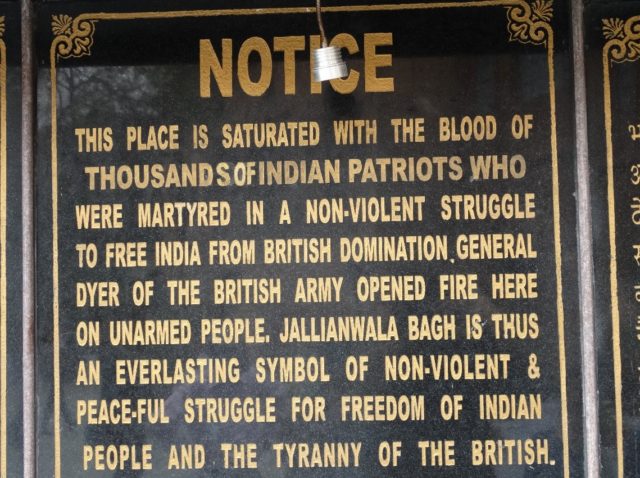
2019
- British Prime Minister Theresa May (on April 10th) expressed “regret” in the British Parliament for the Jallianwala Bagh massacre, ahead of the 100th anniversary of the killings on April 13.
- “We deeply regret what happened and the suffering caused,” Ms. May said.
- May also quoted Queen Elizabeth’s remarks, calling the incident a “distressing example” of Britain’s history with India.
- Although Queen Elizabeth II had not made any comments on the incident during her state visits in 1961 and 1983, she spoke about the events at a state banquet in India on 13 October 1997.
- On 14 October 1997, Queen Elizabeth II visited Jallianwala Bagh and paid her respects with a 30‑second moment of silence.

- In February 2013, David Cameron became the first serving British Prime Minister to visit the site, laid a wreath at the memorial, and described the Amritsar massacre as "a deeply shameful event in British history”.
- However, Cameron did not deliver an official apology.

Turning Point
- The year 1919 thus became a turning point of time by opening door for a new era, the era of Mahatma Gandhi in the history of India.
- - - - - - - - - - - - - - -
Leave a Reply
Your Comment is awaiting moderation.


